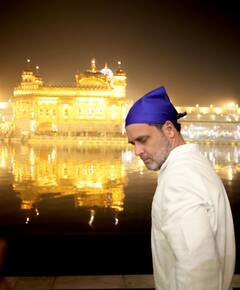Is China Trying To Interfere In Beliefs Of Kailash Pilgrims? Know Full Report | ABP News
The closure of routes to Kailash Mansarovar Yatra, a pilgrimage deeply revered by Hindus as the sacred abode of Lord Shiva, raises significant cultural and geopolitical concerns. This pilgrimage holds immense mythological and spiritual importance, drawing devotees from around the world to seek blessings and spiritual fulfillment. However, the routes to Mount Kailash and Lake Mansarovar pass through Tibet, an autonomous region under Chinese control, where access is tightly regulated by Chinese authorities. The decision to restrict access to such a revered site is seen by many as not just a logistical or administrative measure, but one that intersects with broader geopolitical dynamics. Critics argue that such restrictions may reflect China's stance on religious freedoms and its approach to managing cultural and religious practices within its borders. The perception that "Mao's heirs," referring to the Chinese Communist Party leadership, stand as obstacles reinforces the narrative that political ideologies and strategic considerations could be influencing policies regarding religious sites. Moreover, in the context of international relations, these actions can strain diplomatic ties and lead to accusations of cultural insensitivity or interference. The association of such decisions with China's military capabilities, hinted at by the mention of "destructive missiles," adds another layer of concern about the motivations behind these policies. Ultimately, the closure of routes to Kailash Mansarovar Yatra is not just a logistical inconvenience but a complex issue that touches upon religious freedoms, cultural heritage, and geopolitical tensions, highlighting the delicate balance between spiritual reverence and international relations.





Top Headlines
Trending News















































